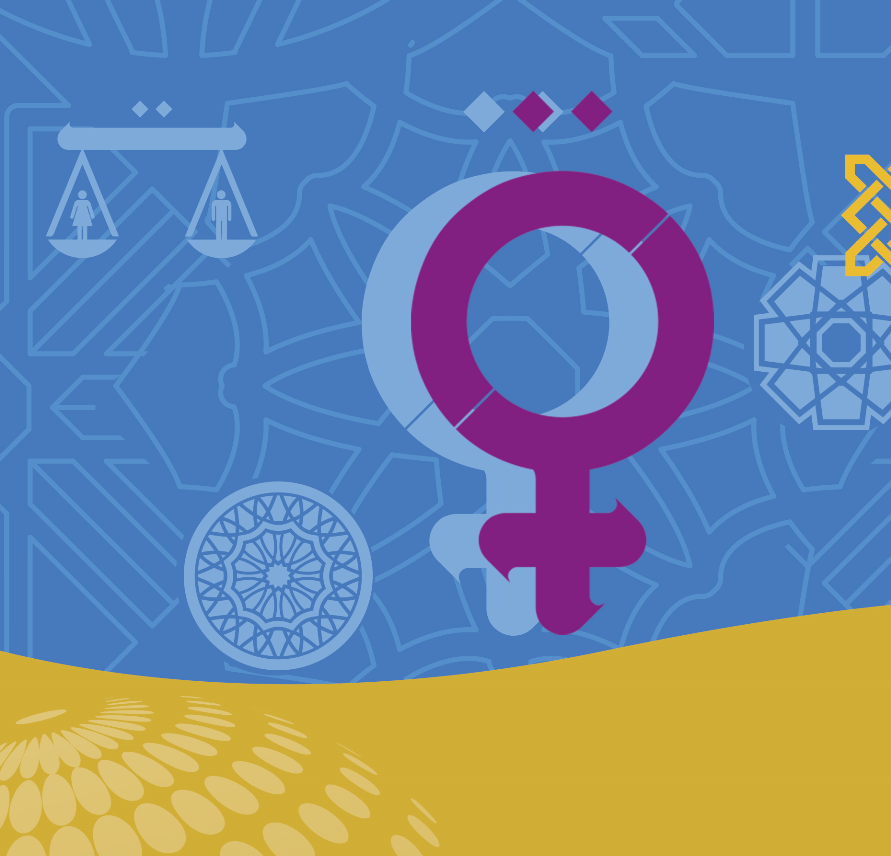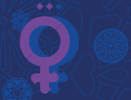The MENA-OECD Competitiveness Programme on Gender
For more than 15 years, the MENA-OECD Competitiveness Programme has been actively engaged in promoting gender equality and women’s economic empowerment in the MENA region as a way to boost sustainable and inclusive growth, and as a key driver of peace, stability and social cohesion. Instead of being treated as a separate – sometimes siloed – agenda, policy responses for economic recovery and women’s economic empowerment can both be achieved through a mutually-reinforcing dynamic.
This is all the more significant in the post-COVID-19 pandemic context, which calls for building more inclusive, resilient societies and economies. With women in MENA countries increasingly well-educated and skilled, their stronger participation in employment, entrepreneurship and public life could substantially contribute to “build back fairer” providing opportunities for governments to get their economies back on track while delivering on the 2030 Agenda for Sustainable Development.
The MENA-OECD Ministerial Conference held on 1 April 2021 and the Ministerial Declaration acknowledged the urgency of unlocking women’s economic potential for the MENA’s region recovery. Both endorsed the 2021-2025 MENA-OECD Competitiveness Programme, which notably aspires to support the design and implementation of efforts for economic and societal reforms aiming at enhancing women’s economic empowerment across the MENA region. Work will address women’s participation in the labour market and efficient governance of the collection, analysis and dissemination of gender data and statistics while continuing battling legal discrimination.
Programme Approach
The Programme builds on a multi-stakeholder approach and the OECD’s methodology of peer learning and sharing of good practices.
It draws on a twofold strategy: dedicating specific projects to gender equality and women’s economic empowerment while also mainstreaming gender considerations across the MENA work programme.
The gender activities support MENA countries at both the regional and national levels, seeking to address the needs and development priorities of the MENA region, while taking into account its diversity:
- The Women’s Economic Empowerment Forum is a regional network for regional policy dialogue promoting the exchange of good practices and fostering regional cooperation.
- The Country Programmes in Morocco and Egypt include gender-specific projects. These national programmes complement the regional work on gender and lead to in-depth policy advice and recommendations guiding the design and implementation of strategies, action plans and reforms.
Programme Objectives
The MENA-OECD Competitiveness Programme on Gender aims to support MENA countries in:
- Ensuring better conditions for women’s access to employment, particularly in the formal private sector, including entrepreneurship, as a powerful vehicle for promoting inclusive growth and stability in the region.
- Promoting adherence to OECD standards on gender equality, including the 2013 OECD Recommendation on Gender Equality in Education, Employment and Entrepreneurship;
- Changing laws and mindsets that concern gender equality to ensure that legal reforms are implemented, enforced and have a positive impact on gender equality and women’s economic empowerment;
- Collecting better gender data to better inform policy-making;
- Enhancing gender mainstreaming in critical policy areas.
Latest publication
Autonomisation économique des femmes au Maroc : de l'engagement à la mise en oeuvre (2024)
See also:
Regional Dialogue Series
The WEEF is organising a series of regional dialogues on “Women’s Economic Empowerment and Digitalisation in the post-COVID-19 MENA economies”.
- Making digital a catalyst for women’s employment in the MENA region, co-organised with the Moroccan Ministry of Solidarity, Social Integration and Family | 17 March 2022 | Outcome document
- How to foster women’s entrepreneurship in the MENA digital sector? Barriers and success factors, co-organised with UNIDO, 18 November 2021 Outcome document | Outcome document in Arabic
- Gender-sensitive education and skills development policies in the MENA region: Developing girls’ digital skills in the post-COVID-19 world, 5 July 2021 | Outcome document
Other events
- Closing the gender gap to rebuild a post-Covid-19 economy for all, July 2020
- Women's Economic Empowerment Forum 2020, December 2020 | Event conclusions
Blogs
- The pandemic’s silver lining: digitalisation is bringing more opportunities for the economic empowerment of MENA women by Megan Tannous, Project Officer, PITA
- How serious is COVID-19 for women in the Arab World? by Sana Afouaiz, Founder and Director, Womenpreneur Initiative
- Look ahead, but don’t forget to look back by Jan Thesleff, Co-Chair of the MENA-OECD Women’s Economic Empowerment Forum and Ambassador to Egypt, Government of Sweden.
Recent reports

Changing Laws and Breaking Barriers for Women’s Economic Empowerment in Egypt, Jordan, Morocco and Tunisia
At a moment when many countries of the MENA region are looking to accelerate economic growth and build more stable, open societies, this report argues that greater women’s economic empowerment holds one of the keys. It asserts that despite challenges some countries are facing in guaranteeing women equal access to economic opportunity, progress is underway and can be further nurtured through targeted, inclusive and coordinated policy actions.
READ THE REPORT

تغيير القوانين وكسر الحواجز من أجل تحقيق التمكين الاقتصادي للمرأة في مصر والأردن والمغرب وتونس
في الوقت الذي تتطلع فيه العديد من بلدان منطقة الشرق الأوسط وشمال إفريقيا إلى تسريع وتيرة النمو الاقتصادي وبناء مجتمعات أكثر استقرارًا وانفتاحًا، يشير هذا التقرير إلى أن المزيد من التمكين الاقتصادي للمرأة هو أحد المفاتيح لتحقيق ذلك. كما يؤكد أنه على الرغم من التحديات التي تواجه بعض البلدان لضمان المساواة للمرأة في الوصول إلى الفرص الاقتصادية، فإن التقدم يحدث حاليًا ويمكن تعزيزه بشكل أ.
اقرأ التقرير

COVID-19 crisis in the MENA region: impact on gender equality and policy responses
This brief takes stock of the impact of the COVID-19 pandemic on gender equality in the region and highlights gender-sensitive measures and initiatives taken by governments, the private sector and civil society to mitigate the impact of the crisis on women.
©Shutterstock/Anton Petrus
READ THE BRIEFVideos
Regional Programme: the MENA-OECD Women’s Economic Empowerment Forum (WEEF)
 Launched in 2017, the WEEF is a regional network that works to galvanise and support the implementation of policy reforms to improve women’s access to economic opportunities across the MENA region. It offers a platform for multi-stakeholder dialogue fostering regional cooperation where government and non-government representatives from MENA and OECD economies can exchange good practices and find solutions for enhancing women’s economic empowerment. The WEEF works in close collaboration with international and regional organisations advocating gender equality such as UN agencies, the League of Arab States, CAWTAR, the Union of Arab Banks, and the Union for the Mediterranean.
Launched in 2017, the WEEF is a regional network that works to galvanise and support the implementation of policy reforms to improve women’s access to economic opportunities across the MENA region. It offers a platform for multi-stakeholder dialogue fostering regional cooperation where government and non-government representatives from MENA and OECD economies can exchange good practices and find solutions for enhancing women’s economic empowerment. The WEEF works in close collaboration with international and regional organisations advocating gender equality such as UN agencies, the League of Arab States, CAWTAR, the Union of Arab Banks, and the Union for the Mediterranean.
The WEEF board gathers national focal points from all the region. Participants include policy-makers, members of international organisations, NGOs and business associations, as well as scholars. It works as a working group, providing technical expertise and facilitating interactions with national authorities to achieve the objectives of the WEEF.
On December 2021, the Ministerial panel of the WEEF agreed on a targeted roadmap of action that MENA countries need to strive for in order to close the gender gap. The WEEF will use the identified objectives and priority actions to design its 2021-2025 programme of work, focusing on three policy areas:
i) Implementation of legal reforms and women’s access to justice;
ii) Women’s participation in the labour market;
iii) Governance of data collection, analysis and dissemination.
Country Programmes: Morocco and Egypt
Gender in the Egypt Country Programme
Implemented in partnership with the National Council for Women, the Egypt Country Programme (ECP) proposes a coherent set of complementary activities to support Egypt in addressing gender issues. The ECP includes three gender-specific projects:
Project 1: The Review of women’s economic empowerment aims at assessing progress and explore policy options for further convergence of Egypt towards international and regional standards and principles, including the 2013 OECD Gender Recommendations on Education, Employment and Entrepreneurship.
Project 2: The Review of women’s participation in public life aims at assessing the current situation of Egypt’s public administration and the parliament from a gender perspective, and identify progress towards the 2015 OECD Recommendation on Gender Equality in Public Life.
Project 3: The Review of gender statistics compiled and disseminated by the national statistics system of Egypt to identify data gaps.
Gender in the Morocco Country Programme
Implemented in partnership with the Minister of Solidarity, Social Development, Equality and Family, the Women's Economic Empowerment Project of the Morocco Country Programme (MCP) proposes a set of complementary activities to support Morocco in addressing gender issues.
The project has three main components:
1. Improving the collection and analysis of data on gender equality to feed debates with reliable statistics and support the development of reforms adapted to the Moroccan context.
2. Coordinating and strengthening the capacities of public and private actors in the implementation of the "Morocco Attamkine" Programme concerning women’s access to economic opportunities.
3. Mainstreaming gender in all activities of the Morocco Country Programme in order to adopt a holistic approach to gender and achieve better results.
Gender equality and women’s economic empowerment: where does the MENA region stand?
Education
Women in the region are more educated than ever before:
- Between 34 and 57% of STEM graduates in Arab countries are women, outperforming OECD countries where women accounted for 31% of all graduates in these subjects in 2018.
- The regional average of women’s literacy rates has increased from 45% in 1990 to 72% in 2018, and shares of female and male literates among the young (15-24 years) were almost similar in 2018 with 93% and 89% for male and female youth, respectively (UNESCO, 2019).
- Gender gaps are closing in primary and secondary education enrolment rates with 3 and 5 percentage points in favour of men in 2018, respectively (UNESCO, 2019).
- Tertiary education enrolment rates for women have increased significantly from 24% in 2005 to 43% in 2019, exceeding both the regional male enrolment rates (40%) and the world average for female enrolment (36%) (World Bank, 2020).
Employment opportunities
Social norms and legal frameworks continue to constrain women’s access to economic opportunities:
- Women’s labour force participation is not only the lowest in the world, but also rising very slowly, reaching 19.77% in 2019 compared to 18.66% in 2000 - representing a one percentage point increase in almost 20 years (World Bank, 2021).
- The region has the widest gender gap in entrepreneurial activity with only 23% of businesses owned by a woman and 34% of nascent enterprises created by women in 2015 (OECD, 2017).
- Women’s employment is particularly vulnerable with 62% of female workers informally employed and 33% of them as contributing family workers in 2018, compared to 6% of male informal workers (ILO, 2018).
- In 2019, 42% of young women were unemployed and 31% were not in employment, education or training (NEET), compared to 20% and 14% of young men, respectively (ILO, 2020).
- Ongoing conflicts in the MENA region largely restrained women’s economic opportunities and livelihoods.
COVID-19
 The economic downturn resulting from the COVID-19 crisis hit women the hardest and reinforced existing gender inequalities in the MENA region.
The economic downturn resulting from the COVID-19 crisis hit women the hardest and reinforced existing gender inequalities in the MENA region.
- The sectors which are overexposed to the collapse in economic activity comprise a sizeable share of female employment. As a result, around 700,000 women in the region are expected to lose their jobs in the 2020-2021 period (Oxfam, 2020).
- Given the low participation of women in the labour force, and a large proportion in the informal sector, women are often excluded from contributory social security schemes (including old-age pensions, health insurance, disability, maternity and sick leave), which further increases their vulnerability in times of crises.
- Like women around the globe, women in MENA suffer from expanding unpaid care burdens and increasing domestic abuse, threatening their already low levels of participation in the labour market.
- The outbreak of the pandemic has put women in conflict-affected areas at particular risk. This is especially true for female refugees as movement restrictions and lockdowns prevented them from working and so raised important concerns regarding their ability to provide for their family basic needs. These risks were compounded by the potential disruptions in humanitarian assistance in the camps due to the confinement measures.
Other Publications
- Women’s Economic Empowerment in Selected MENA Countries: the impact of legal frameworks in Algeria, Egypt, Jordan, Libya, Morocco and Tunisia (2017) Also available in: Français | Arabic
- Women in Business 2014: Accelerating Entrepreneurship in the Middle-East and North Africa Also availble in: Français | عربي
- Women in Business: Policies to Support Women's Entrepreneurship Development in the MENA Region (2012)
- Empowering Women-led SMEs: Economic Development and the New Arab World, Draft issues paper, 2012
- Women’s Access to Finance in the Middle East and North Africa (MENA) Region, Draft issue paper, 2011
Contact us
For more information about the MENA-OECD Competitiveness Programme on Gender Equality and Women's Economic Empowerment please contact us with your questions: MENA.competitiveness@oecd.org


